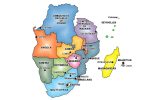BANGKOK – The Thai police will hand out whistles to female tourists after the latest in a long series of periodic sexual assaults and killings on beaches and elsewhere in the country, officials said.
“We will issue the whistles first in risky areas such as beaches, valleys, mountains, national parks, waterfalls and other risky spots,” Choochart Suwannakom, commander of the national Tourist Police, said in an interview last week.
While Thailand is generally safe for foreigners, recent sexual assaults and killings of foreign tourists have prompted embassies to issue warnings and have led to fears among Thai officials that the country’s attractiveness as a tourist destination could suffer. Tourism is the biggest earner of foreign exchange for Thailand, bringing in more than $16 billion last year, accounting for as much as 6 percent of gross domestic product and generating the most jobs of any industry.
Last week, the police arrested a 31-year-old laborer in the daytime stabbing death March 15 of a Swedish tourist, Hanna Backlund, 27, on a secluded beach in Phuket, one of the country’s leading resort areas. The laborer, Akaradech Tangae, told the police that he had tried to rape Backlund but that “she resisted and I had to kill her,” Reuters reported.
Choochart played down the recent killings, saying, “I believe security in Thailand is better than in many other countries.” He also said that some of the attacks were occasioned by the behavior of the women themselves. Under a front-page photograph of a Western woman in a skimpy bikini, The Bangkok Post quoted Choochart as saying, “They tend to choose a quiet spot away from other people, take off the bikini and sunbathe. That’s when the attackers strike.”
The killing of Backlund was not the only incident of violence involving foreigners to make the news in recent days. On Saturday, a 24-year-old Indian tourist was stabbed to death while trying to break up a fight during the popular Full Moon party on Koh Phangan island.
On Sunday, The Bangkok Post reported that the police had admitted failure in their investigation of the widely publicized killing in 2000 of Kirsty Jones, 24, a British backpacker who was strangled to death in a guest house in the northern province of Chiang Mai.
“The murders come as a wake-up call for the authorities, who seem to show no concern about the shortage of investment in the tourism industry or the political will to improve the safety of tourists,” the newspaper said.
More than 14 million tourists visited Thailand last year, by an official count, and the number of arrivals continues to climb. But Thai tourism is an industry built on image – beaches, temples, elephants, smiles – and to threaten that image is considered a serious offense.
When two fishermen were arrested in January 2006 for the rape and killing of a young British woman at Koh Samui, another of the country’s leading resorts, the prime minister at the time, Thaksin Shinawatra, all but ordered their executions. “They have done huge damage to the country,” he said.
After receiving a death sentence just two weeks later, one of the men, Wichai Sonkhaoyai, 24, seemed to see his crime in the same light. “I apologize for ruining the country’s image,” he said.
Tourist arrivals in Thailand can fall quickly, as they have in response to reports of bird flu, SARS and terrorist activity elsewhere in the region. The most notable setback in recent years was the tsunami of December 2004, which took the lives of more than 5,000 foreigners, mostly in and around Phuket. After each of these blows, tourism has recovered and resumed its growth.
But two continuing problems have drawn travel warnings from foreign governments: a violent Muslim separatist insurgency in the southern provinces, and the danger of violent crime and sexual assault.
On Tuesday, the State Department urged Americans to postpone travel to southern Thailand after a bomb attack on a hotel that is popular with foreigners. Two people were killed and 14 wounded.
The travel warnings about assaults address themselves particularly to women. “We continue to receive reports of sexual offenses committed against foreign women and men,” the British Embassy warns on its Web site. “Female travelers in particular should maintain a high state of personal awareness during their time in Thailand.”
Two other British women were raped in separate incidents in January 2006, the same month the woman was killed on Koh Samui island, the warning noted.
Several killings of tourists have been reported in a little more than a year. In February 2007, two Russian women were shot to death while sitting in beach chairs at the popular beach resort of Pattaya. A 24-year-old laborer confessed to that crime, saying he had intended only to rob the women but “had to shoot them as they were yelling and screaming.”
A 32-year-old Israeli tourist was stabbed to death during the Full Moon festival in Koh Phangan last April. A gang of teenagers, including the son of a local politician, are the chief suspects. In November, a 27-year-old Japanese woman was robbed and stabbed to death while visiting the ancient Thai capital of Sukhothai during the Loy Krathong water festival. The police say they are still investigating that killing.
In January, a Canadian tourist was shot to death and his wife wounded in the early morning outside a pub in the northern city of Mae Hong Son. A policeman confessed to the shooting, but said he had acted in self-defense when the couple assaulted him.
The Swedish tourist, Backlund, was stabbed to death while walking alone on a secluded beach far from residential areas. A police officer described the suspect as a peeping Tom who “loves to bring friends to this remote and quiet beach to look at naked tourists.”
The Phuket governor, Nilan Gallayanamit, promised to increase security. “This case has really hurt Phuket’s reputation,” he said.
iht.com






















